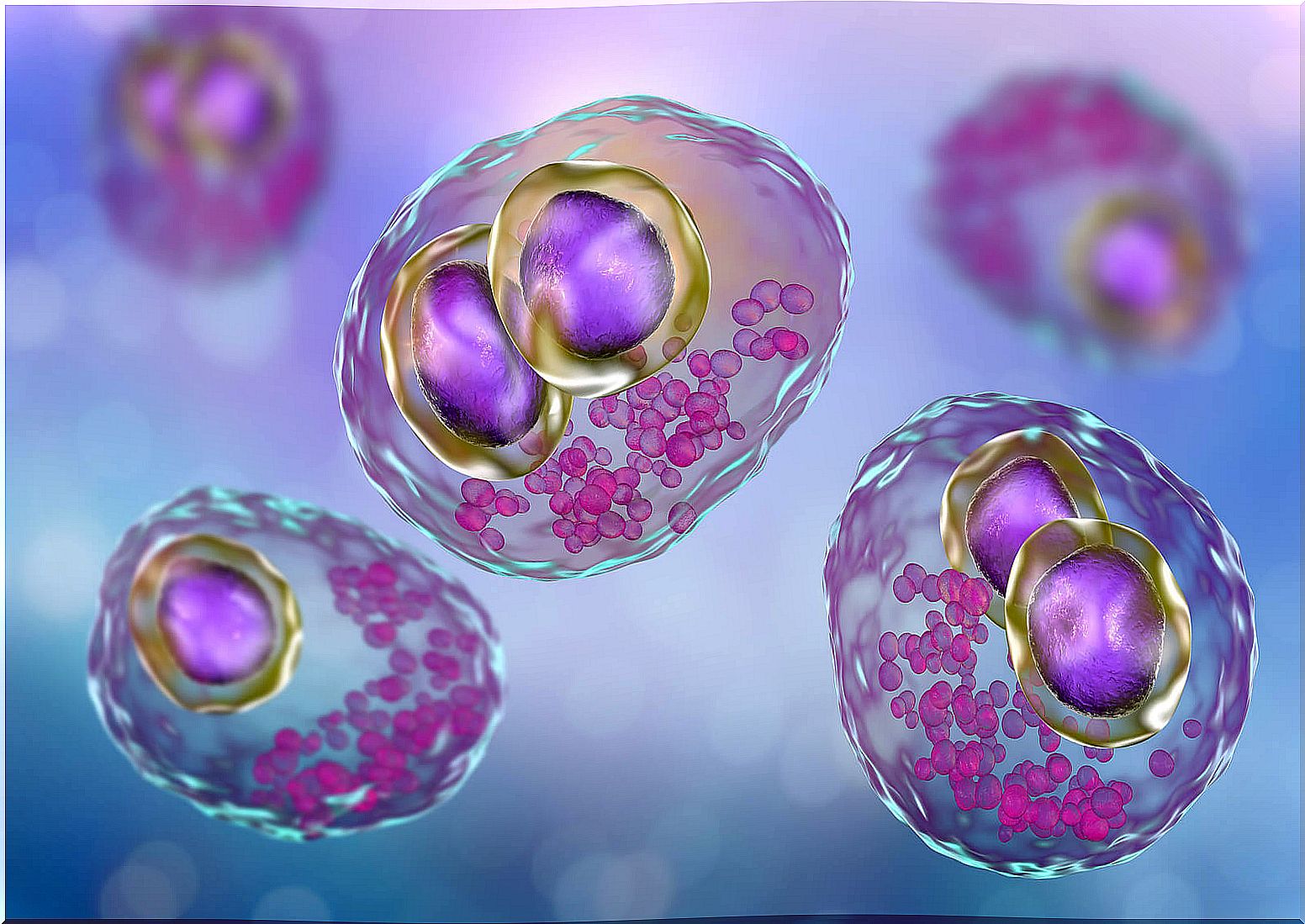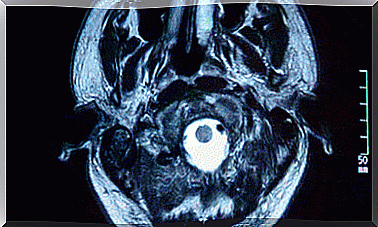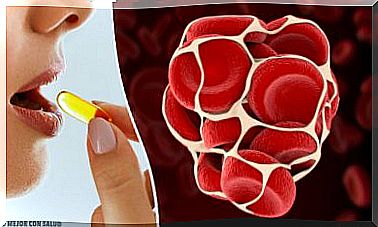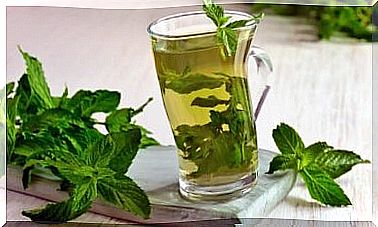How To Differentiate Food Poisoning From Stomach Flu?
Food poisoning and the stomach flu have a number of similarities to each other, but also several differences to be aware of. It is necessary to start different treatments depending on the reason that causes the discomfort; therefore, it is important to make a correct diagnosis.
We are going to show you how both conditions differ, not only from the point of view of their causes but also of the consequences and prognosis. Keep in mind that in many cases the intervention of a professional will be necessary; otherwise, the subject’s health status could be put at risk.
What causes viral gastroenteritis?
Stomach flu is usually caused by a virus that causes inflammation of the digestive tract, causing stomach and intestinal problems. It is common to experience vomiting, diarrhea and pain from this class of infectious diseases.
It should be noted that it is a contagious disease that can be transmitted between subjects due to close contact. It is transported by means of the droplets that are expelled when speaking. Also, it is possible to experience an infection through the use of contaminated objects.
Several viruses can trigger the problem. Noroviruses usually affect younger children, as do rotaviruses. This is evidenced by a study published in the journal Praxis . However, astroviruses and adenoviruses are much more common in the adult public. Even some types of coronavirus could also generate these processes.

Symptoms of the stomach flu
The stomach flu usually causes abdominal pain, diarrhea and vomiting. However, it is relatively frequent that these ailments are accompanied by chills and fever in an attempt by the body to kill the virus that causes the disease. In addition, it is common to also experience muscle pain.
What to watch out for are symptoms of dehydration. Sometimes the patient is unable to ingest fluids without vomiting, so they are prone to a deficit in the fluid balance. Keep in mind that dehydration can seriously endanger the life of the individual, so be aware of the associated symptoms.
What causes food poisoning?
Unlike the stomach flu, food poisoning is caused by bacteria or a protozoan. The origin is a microorganism or its toxin that irritates and inflames the mucous membranes of the digestive tract and generates, in many situations, a symptomatology similar to that described.
The most frequent poisoning is caused by bacteria of the genus Clostridium. However, it is also very common for the microorganism behind the problem to be Salmonella.
According to a study published in the journal Przeglad Epidemiologiczny , the number of cases affected by this bacterium has increased in recent years. It is found mainly in meats and in products derived from them.
Frequent symptoms
The symptoms caused by food poisoning are very similar to those of the stomach flu in certain cases. It is common to experience diarrhea, vomiting, abdominal pain, fever, and dehydration. However, these tend to last less, although it will depend on the severity of the poisoning and the amount of bacteria or toxins ingested.
However, there are some poisonings that can cause failure of other organs. The liver is usually the main affected. This mainly suffers when mycotoxins from fungi are consumed. It has even been shown that these toxins are capable of increasing the risk of cancer or hepatitis.
When to go to the doctor?
Whatever the cause of the discomfort, it is important to see a doctor when symptoms do not stop within 24 hours or when they worsen over time. Also, if you suffer skin alterations, headache or intense fever.
In addition, the specialist himself will be able to offer solutions to stop continuous vomiting in the form of drugs inoculated intramuscularly r. These are usually very effective for the body to begin to tolerate fluids and reduce the risk of dehydration.
In the event of unconsciousness or severe pain, the emergency department should be contacted immediately.
However, both stomach flu and food poisoning usually subside after a few hours. Typically, symptoms do not last for more than 2 days. Despite this, digestive complications can arise, so it is necessary to monitor that no blood appears in the stool at any time.
How are they diagnosed?

To establish the diagnosis of food poisoning or stomach flu it will be necessary to take a fairly complete medical history. The specialist will ask about the food consumed in the last hours, to assess whether any of them present a microbiological risk.
Also, it will be necessary to know if any close person with whom you had contact is in the same situation. In general, diagnostic tests as such are not usually performed, except in the most serious cases. A serology or a stool culture could even be ordered to know precisely which microorganism is causing the damage.
Recommended treatments
The recommended treatments, regardless of the reason that causes the pathology, will be aimed at seeking a remission of the symptoms, as well as preventing dehydration.
The first thing is to increase the volume of water gradually, as long as it does not cause a reflex of nausea or vomiting . From here on, easily digestible solid foods such as white rice and chicken will be included in the diet. Those products high in fat or fiber will be the last to be reintroduced.
The most serious cases may require the administration of an antihemetic to stop vomiting. Even intravenous serum could be inoculated if symptoms of dehydration are generated, although this already corresponds to hospital management.
In the case of having a viral problem, it is possible to include a vitamin C supplement to strengthen the immune system. If what causes the disease were a bacterium or a toxin, it could also be considered to make use of some drugs that block its effects or eliminate the pathogen. An example would be antibiotics in the most severe cases.
How to prevent them?
Prevention is a key point when avoiding stomach flu and food poisoning. To avoid suffering them, it is essential to guarantee good hand hygiene and correct food handling before and during consumption. Respecting the cold chain and good conservation practices will be essential.
Similarly, not making close contact with those who have developed gastrointestinal symptoms can also save you from contracting illness caused by the virus. As long as these are the cause.
However, it is something quite difficult to carry out, since these microorganisms are usually very contagious before generating symptoms in the subject.
Stomach flu and food poisoning, two different problems with similar symptoms
As you have seen, stomach flu and food poisoning share a number of similarities in terms of the symptoms they generate. However, they are caused by different microorganisms, so the treatment that is proposed in the most intense manifestations of the disease is also different.
The best thing is to bet on prevention and guarantee that hygiene measures are observed between people and at the level of food handling. Once the first symptoms have appeared, it is important to know when to go to the doctor and try to avoid dehydration.









